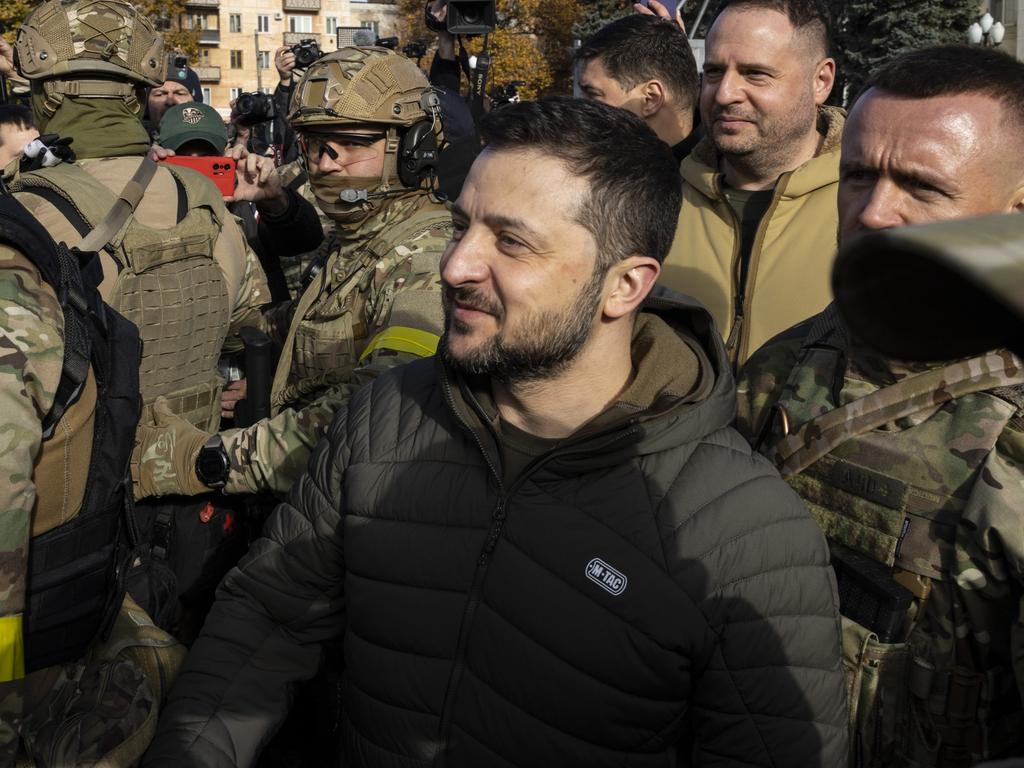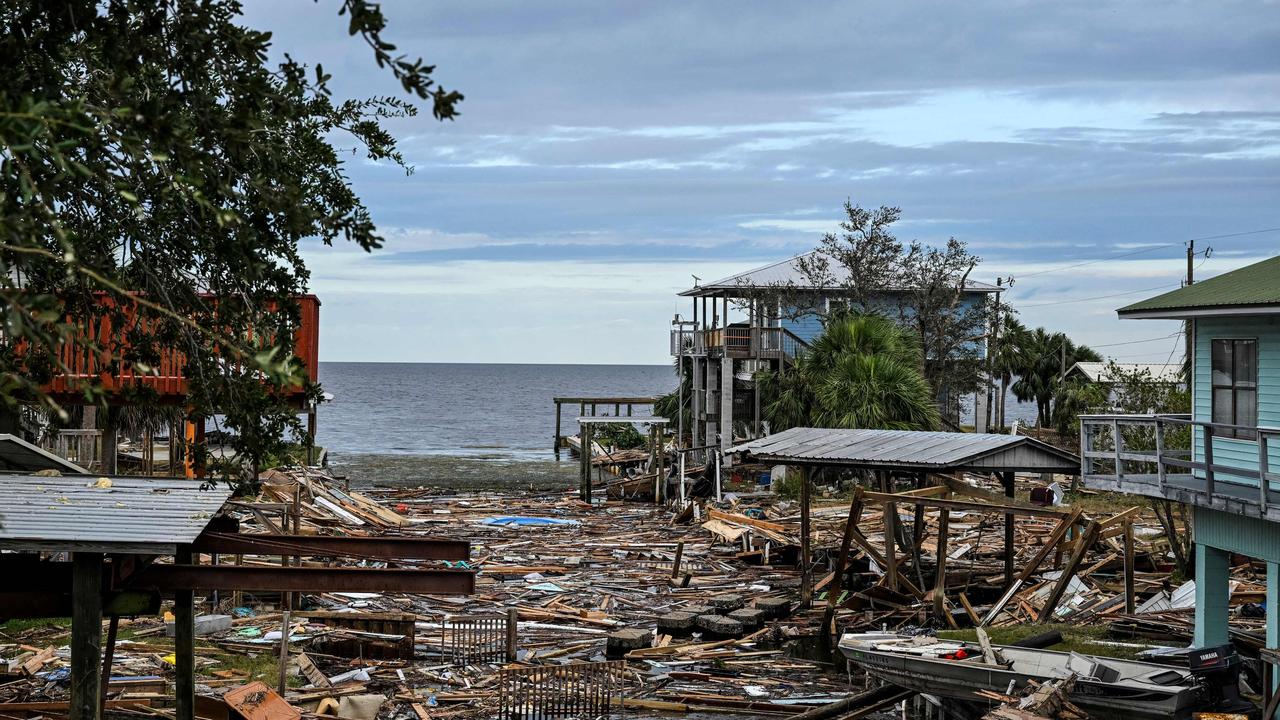US presses allies to tighten up sanctions enforcement on Russia
Trade ‘leakage’ could undermine pressure campaign and potentially prolong war in Ukraine, Western officials warn, as the US continues a quiet diplomatic push.
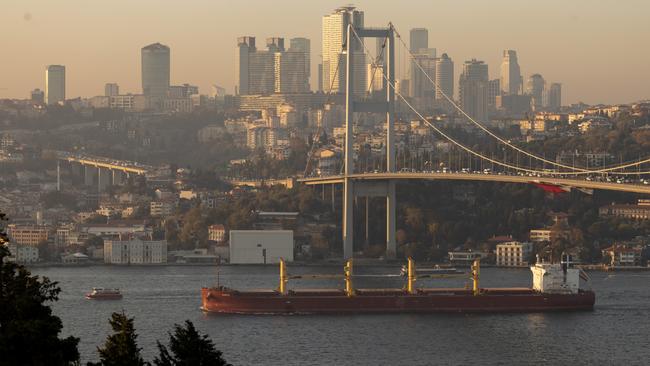
US officials are jetting around the globe in a quiet diplomatic push to get Russia’s major trading partners to enforce sanctions and trade controls, as exports to the country pick up after diving in the weeks following Moscow’s invasion of Ukraine.
The US and its allies claimed early successes in their international pressure campaign, which disrupted Russia’s military supply chains and pitched its economy into a steep contraction.
But so-called sanctions leakage – in which weak enforcement enables banned finance and trade to flow – is undermining the campaign, aiding Russia’s economy and potentially prolonging the war, according to senior Western officials.
“We want to avoid circumvention, both within Europe and then with third countries,” European Commission financial-services commissioner Mairead McGuinness, whose office oversees EU sanctions policy, said in an interview. “The longer we have any leakage … the more difficult it is to see things coming to a conclusion.” Ms McGuiness’s office is sifting through European customs data to root out evasion, she added.
To tighten the finance and trade cordon established by Western countries, the US is sending senior officials from major cabinet agencies to foreign capitals. Their mission: to share intelligence on sanctions evasion networks, quietly threaten reluctant authorities and firms with punitive action, and gather information on networks suspected of ferrying supplies into Russia, according to administration officials.
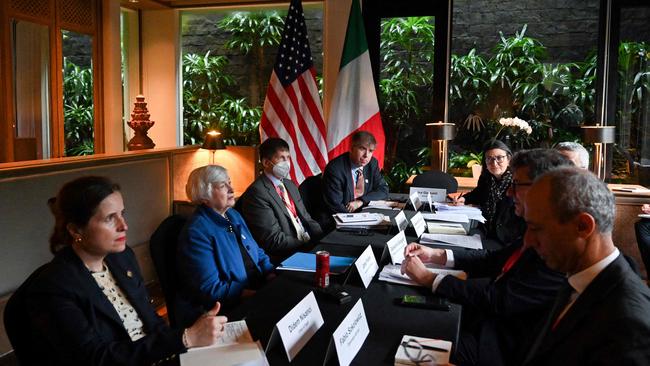
Treasury Secretary Janet Yellen pressed the case with counterparts at the Group of 20 industrialized and developing nations in Bali, Indonesia, last week. Earlier this month, Deputy Treasury Secretary Wally Adeyemo went to Brussels, London and Paris. Elizabeth Rosenberg, assistant secretary for terror finance and financial crimes, was recently in Japan on the same mission.
A phalanx of lower-level officials from Treasury, Commerce and State Department are also jetting around the globe.
“There are public reports that Russian money laundering is active in the Arab world,” Ms Rosenberg told a Union of Arab Banks conference late last month, using unusually pointed language that US officials say was intended as a warning. “This is something we all have a vested interest in preventing, investigating and eliminating.” Trade data through the second quarter shows exports to Russia from many of the world’s largest economies collapsed by more than 50 per cent in the wake of the sanctions imposed in late February. But exports are recovering from many of those countries, including the US’s traditional allies, according to a Wall Street Journal analysis of trade data.
Exports from allies South Korea and Japan remain below pre-sanction levels but have recovered nearly a third of their initial losses, according to the Journal’s analysis.
The EU has continued to expand the total share of exports banned under the Russia sanctions, but it has also erased some of its initial trade declines.
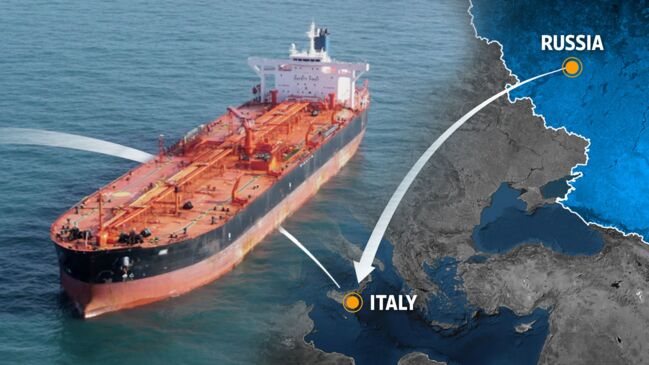
Western officials and some senior compliance officers are concerned that banks in Austria, the Czech Republic, and Switzerland – a non-European Union member that has adopted the EU sanctions – are taking a relaxed view of sanctions enforcement.
While most companies and banks are avoiding transactions that could potentially breach the sanctions, “some industry players see this as an opportunity,” said George Voloshin, a Russia sanctions investigator at the Association of Certified Anti-Money Laundering Specialists. “For example, they are very relaxed when working with Russian government officials.” Swiss financial authorities in April said the country froze around $US8bn ($12.1bn) in Russian assets, but by May said that they had released around $3 billion ($4.5bn) of those assets. Industry analysts estimate the sum of Russian oligarchs’ assets held in Switzerland is much higher.
Antje Baertschi, spokeswoman for Switzerland’s State Secretariat for Economic Affairs, said the level of assets frozen by the government was “high by international standards as well as in comparison to other sanctions regimes.” “We are completely unaware of any criticism,” Ms Baertschi said. Austria’s Raiffeisen Bank International said in March it would review its exposure to Russia, a source of significant business for the bank, including possibly exiting the country. Months later, it said in its third-quarter report that it was still assessing its strategic options in the country. By contrast, most Western banks immediately restricted any financial dealings with Russia after the February invasion.
“RBI Group is of course complying with all applicable sanctions,” said Ingrid Ditz, Raiffeisen Bank spokeswoman. She said the bank had reduced its loans to customers in Russia by 25 per cent in rubles since the beginning of the year and limited new lending.
Exports to Russia from China – which hasn’t backed the Western pressure campaign – are now larger than they were when sanctions were imposed. US officials are concerned that China will provide the financing and goods critical to Russia’s war effort and economy. Beijing says it won’t comply with Western sanctions it says are illegal.
“Sino-Russian relations are rock-solid,” Chinese Foreign Ministry spokesman Zhao Lijian said at a regular news briefing this month.
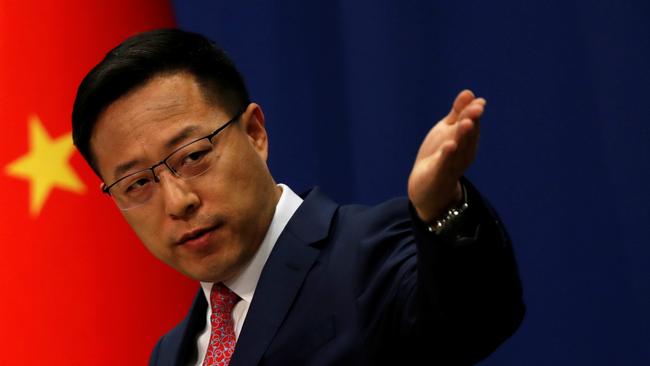
Exports to Russia from Turkey – a NATO member that has supplied Kyiv with armed drones and played a key role in diplomatic talks over Ukrainian grain exports – were up roughly 25 per cent at the end of the second quarter from before the sanctions. Recent data shows that exports from Turkey to Russia have picked up further since.
Nureddin Nebati, the country’s finance minister, said his nation isn’t undermining the pressure campaign. “We are continuing our trade with Russia in areas that are not subject to any sanction,” he told the Journal in an interview.
Ankara said it had halted plans in its banking sector to connect Turkey’s financial industry to Russia’s payments system, which would have provided Moscow with an important link to the global financial system. Most of Russia’s banking system has been sanctioned.
“It is a global effort,” Brian Nelson, undersecretary for terrorism and financial intelligence, said in an interview. That means, “going after sanctions evasion, targeting our efforts to have an impact on the battlefield, and going after those who continue to allow President Putin to project power”.
– Andrew Duehren and Caitlin Ostroff contributed to this article.
– The Wall Street Journal


